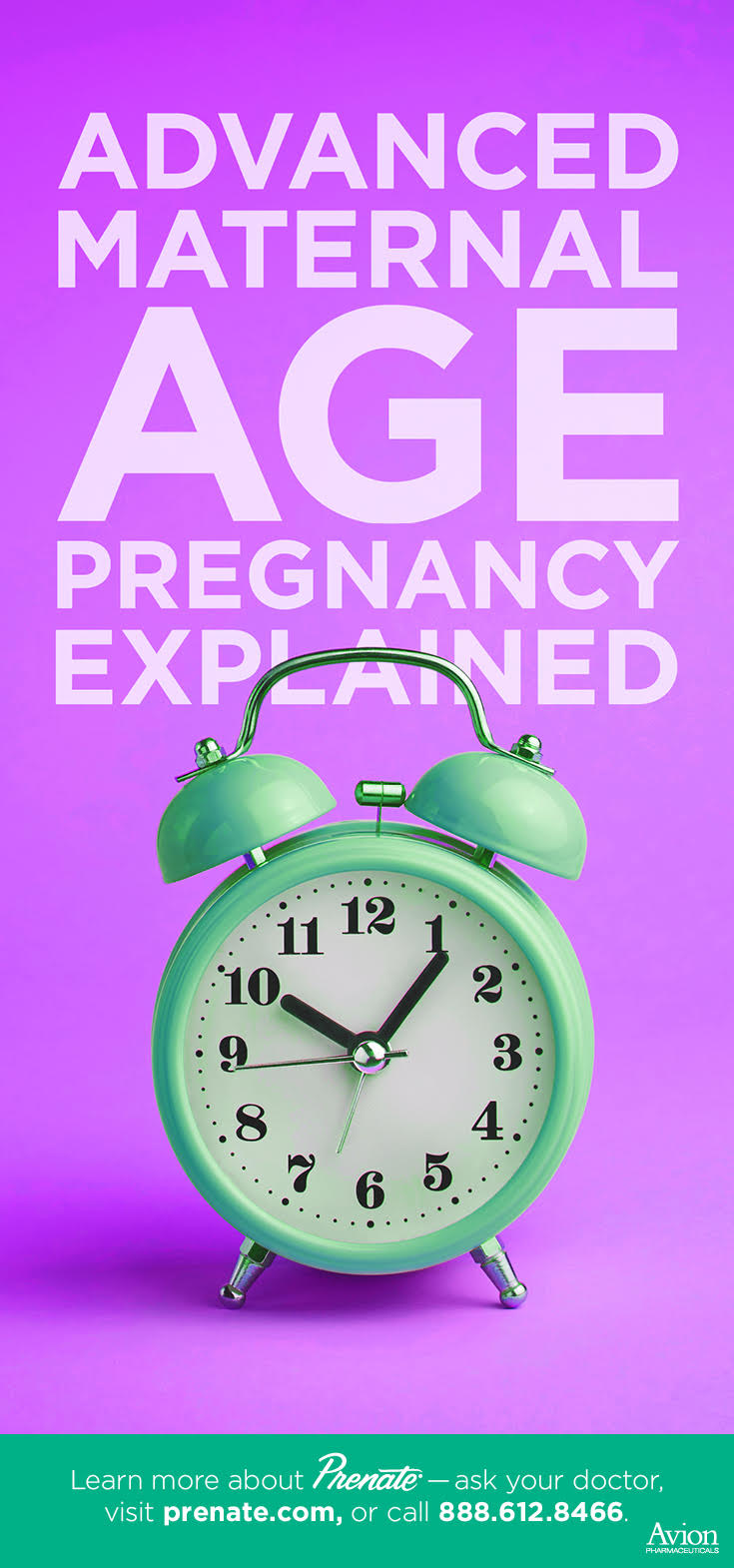What is an Advanced Maternal Age Pregnancy?
July 25, 2019
On average, women are waiting longer to have babies.1 In healthy women, waiting a few years before starting a family is typically fine, but when pregnancy occurs in women age 35 or older, can come with increased risks. In today’s post, we’ll review some of those risks and give you some guidelines on what to discuss with your doctor if you’re planning on having a baby after 35.
Advanced Maternal Age Pregnancy
Advanced maternal age pregnancy, sometimes called geriatric pregnancy, is traditionally defined as pregnancy in women age 35 and older. You might be wondering why there’s a need to separately classify pregnancies in women beyond a certain age. The reason has to do with women’s reproductive health and the increased possibility of health complications.
In advanced maternal age pregnancies (AMAs), mothers are at higher risk of complications resulting from pregnancy. These complications may affect the mother’s health, the health of the fetus, or both.2
Associated Risks for Mother and Baby
Some of the commonly associated risks with AMA include preeclampsia, birth defects, miscarriage, uterine fibroids and endometriosis. It’s important to review these risks with your health care provider if you are having a baby in your mid-30s or beyond.
Preeclampsia is a condition that only occurs during pregnancy and can cause high blood pressure and protein in the urine. Preeclampsia affects 5 percent to 8 percent of all pregnancies, but the risk increases for women over age 40. If not treated promptly, preeclampsia can lead to serious health complications for mothers, including liver or renal failure and cardiovascular issues.3
Birth defects are physical or biochemical abnormalities that usually occur in the first three months of pregnancy. Although they can occur in pregnant women of any age, the risk for birth defects increases in women over age 34.4
Miscarriage is a term used for pregnancies that ends on their own, typically within the first 20 weeks of gestation. While some miscarriages occur for unknown reasons, a common cause is chromosomal abnormality.5 As women age, the number of eggs they carry in their ovaries declines, and the ones that remain are more likely to have abnormal chromosomes.2
Fertility complications are also more common in mothers of AMA. Endometriosis and uterine fibroids are two such complications that are more likely to affect women who are 35 and older which can cause infertility issues.2
Developing a Reproductive Life Plan
A reproductive life plan includes thinking about whether or not you would like to have children and when to have them. If you decide you would like to have children, you can discuss your goals with your OB-GYN and he or she can help you develop a reproductive life plan in greater detail.
Once you’ve established a reproductive life plan, it’s a good idea to follow up with your OB-GYN yearly to make any necessary changes, adjust your nutritional or other health care needs, discuss birth control options and more.
Prenatal Care is Vital
Please know the statistics in this post are meant to educate – not alarm. Women over age 35 can absolutely have healthy pregnancies, so don’t feel discouraged if you are in that age group and have not yet had a baby. Simply keep the risks in mind and take precautions, as advised by your health care professional, to reduce those risks. One way of doing this is to practice excellent prenatal care by scheduling regular checkups with your OB-GYN, listening to your body and making sure all of your other health needs are being met. Taking prenatal vitamins can also be beneficial, particularly ones that meet the unique needs of older mothers-to-be.
Prenate® Enhance, part of the Prenate® Vitamin Family line of prenatal vitamins, is ideally suited for mothers of advanced maternal age and offers higher absorption rates than many other similar products on the market. Talk to your doctor today to learn about the benefits of adding a daily prenatal vitamin to your prenatal care plan.









